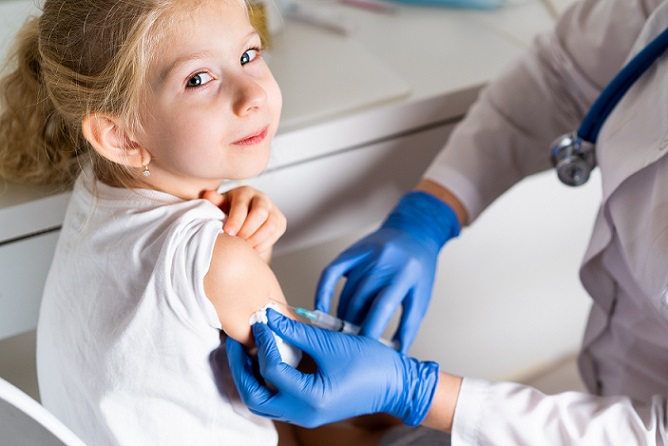COVID-19 remains top of the global news agenda with the arrival of yet another new variant and its implications for our future health. In the UK, the COVID-19 jab programme is progressing quickly, with the majority of eligible people now at least partially protected from the virus. In September, the UK government announced that one dose of the
COVID-19 vaccine for children of ages 12 and 16 would be offered. This has since been rolling out in schools and community-based vaccine centres across the country over the autumn and winter.
Children’s Healthcare and The COVID-19 Jab: To Vaccinate or Not?
As with any subject involving children’s healthcare, there have been powerful emotions and arguments displayed on both sides of the debate. Some people vehemently oppose the mass vaccination of minors, from a safety or morality/human rights point of view while others argue that offering jabs to as many people as possible is vital for the overall protection of society during a serious, ongoing global health concern. Others are unsure what to think about the issue. Even if they are largely pro-vaccines in their views, they are concerned by the lack of data around long-term implications of this particular vaccine and the speed at which it has been developed.
So, the decision about whether to vaccinate your child against COVID-19 or not can be especially tricky for parents to negotiate. Especially if one person is on one side of the COVID-19 jab debate and the other has very different views, concerns or beliefs.

What is the Child Vaccine Law?
In the UK at the time of writing, vaccinating children against COVID-19 is not compulsory by law. The UK authorities have written to schools and parents laying out their reasons why they would recommend this action. However the final decision remains with the child’s parents or guardians. They must give their formal, written consent for the vaccine to be administered to their child, usually via an online form that is passed on to the teams giving the vaccines. There are some cases when a child can be deemed responsible to make their own decision around receiving the COVID-19 jab or not. This is called Gillick competence and the child must demonstrate full understanding of the decision they are faced with and the implications of their choice.
Children and Vaccines When Parents Disagree
In the same way as agreeing on which school to send a child to or what religion they should be encouraged to follow, healthcare decisions are not always straightforward. Parents with strong opposing views can come up against conflict quite quickly, which they may need help resolving. This is where a family solicitor can advise. Arranging support for disagreeing parents to resolve the issue before a court has to step in is the best approach to take. Such support can come in various guises:
· Researching and providing information around children’s healthcare law, the consent process and Gillick competence
· Arranging
family counseling for one or both parents, alone or with the child present
· Setting up formal mediation with a neutral third-party to guide the debate and keep emotions in check
· Overseeing the process of collaborative law – each party has a trained lawyer present in meetings to support them, along with relevant specialists, to help everyone involved reach a legally binding agreement without going to court
If the Case Goes to Court
While this can seem scary, some cases cannot be resolved without the issue being put before a family court to decide the outcome. In this scenario, a
family solicitor can help parents prepare their case around what they want for their child vaccine, instruct legal counsel to represent them in court and support parents and guardians through the entire process. The family court will look at each situation on an individual basis and decide on what is best for the child, first and foremost.
Decisions can also be affected by the set-up of the household in which the child is living. For example, whether the marriage or partnership is intact, but the parents disagree. Or if the parents are divorced or separated – and whether the split was amicable or not. In some cases, the family court itself will take responsibility for making the decision. This is normally when an agreement cannot be sorted out any other way or the child’s safety is endangered. The child’s pediatrician, medical consultant or relevant school staff may also be consulted. If the child is old enough and deemed competent to be involved in the decision, their opinion may also be sought.


